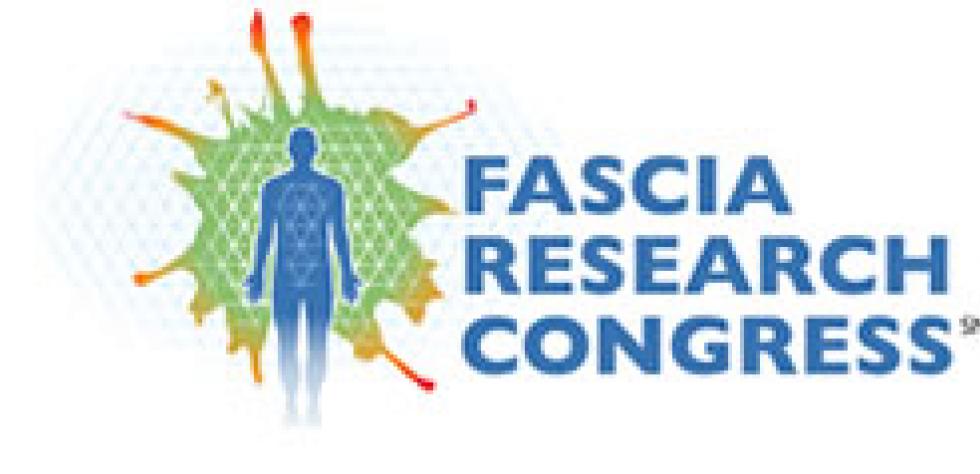The cerap is "Academic sponsor" of FRC 2018
Latest and most relevant fascia research at Fifth International Fascia Research Congress
The International Fascia Research Congress (FRC) will present the latest and most relevant fascia science in Berlin at the Urania Center Nov. 14 - 15, 2018. The theme for the 2018 Congress is Connecting Key Issues: How Fascia Research Can Impact Health Outcomes.
An important continuing initiative of the FRC is to foster understanding and collaboration among scientists working in fascia research and the various clinical professionals who address fascia in their work with clients and patients. It is a unique event that draws researchers from the fields of biomechanics, matrix biology, rehabilitation, and sports medicine, and clinicians including acupuncturists, chiropractors, massage therapists, osteopaths, physiotherapists, physiatrists, and structural integrators.
Mark Driscoll, PEng, PhD, and Werner Klingler, MD, PhD, head the Scientific Committee. Driscoll is expert in spine biomechanics, a Professor of Mechanical Engineering, and Head of the Musculoskeletal Biomechanics Lab at McGill University, Montreal, Canada. Klinger directs the neurophysiological muscle laboratory and is a Professor at Ulm University (Germany) and an Adjunct Professor at Queensland University of Technology, Brisbane (Australia). Driscoll and Klingler lead a team of leading fascia scientists who select the speakers and abstracts presented at the Congress.
The keynote presentations will cover intriguing topics including how research can inform clinical practice, the evolutionary role of the IT Band in locomotion, fascia as it relates to immunology and cancer, the neurology of spine pain, and the tensegrity of biomechanics. Keynote speakers include:
• Adamantios Arampatzis, PhD, Department of Training and Movement Sciences at Humboldt-University Berlin. TOPIC: Neuromuscular capacity & motor function
• Paul Hodges, PhD, MedDr, DSc, BPhty (Hons), FACP, Senior Principal Research Fellow and Director of the NHMRC Centre for Clinical Research Excellence in Spinal Pain, Injury and Health (CCRE SPINE) at the University of Queensland, Brisbane Australia. TOPIC: Pain & movement control
• Daniel Lieberman, AB, PhD, M.Phil, Professor of Biological Science, and Chair of the Department of Human Evolutionary Biology at Harvard University. TOPIC: Evolutionary biology & biomechanics
• Carla Stecco, MD, Centre for Mechanics of Biological Materials, University of Padova, Italy. TOPIC: Understanding matrix biology of fascial tissues: new insights during the last 3 years
• Melody A. Swartz, PhD, the William B. Ogden Professor of Molecular Engineering at the University of Chicago. TOPIC: Lymphatic system, pathophysiology & immunity
• Neil Theise MD, Diagnostic liver pathologist and adult stem cell researcher, Beth Israel Medical Center, Albert Einstein College of Medicine, New York. TOPIC: Interstitium and Fascia
• Frank Willard, PhD, Professor of Anatomy and Neuroanatomy at the College of the Osteopathic Medicine of the University of New England (US). TOPIC: Spinal anatomy & neurology of spine pain
• L’Hocine Yahia, PhD, Professor and Researcher in Biomedical Engineering and Director of the BioPerformance Lab at Polytechnique Montreal and Associate Professor in Biomaterials and Biomechanics at the Department of Surgery of Montreal University. TOPIC: Bioperformance, biomimetics & bioengineering
Congress attendees have the choice of afternoon parallel sessions featuring invited speakers and poster presenters in the following topics: Assessment Methods, Biomechanical Aspects, Clinical Studies, Fascia in Sports and Movement, Matrix Biology and Fluid Dynamics, New Hypotheses and Experimental Research Methods, Oncological Aspects, Other Fascial Pathologies, Sensory and Neural Aspects
Surgery and Scars, Phenomenlogical & Philosophical Aspects, Veterinary and Animal Models.
Although the FRC is a scientific research conference, the program includes entertaining aspects and opportunity for interaction as well. More than 70 posters written by researchers and clinicians with the latest fascia science will be included. Attendees are invited to attend special interest groups to discuss relevant topics at lunch on Thursday. Attendees have the option of attending a boat cruise party on the first evening and a special Fascia Illuminated presentation of living fascia photos and video on the second evening. And there are a couple of exciting surprises that will soon be announced.
For more information, to register, and to stay up to date on the program, visit the site

